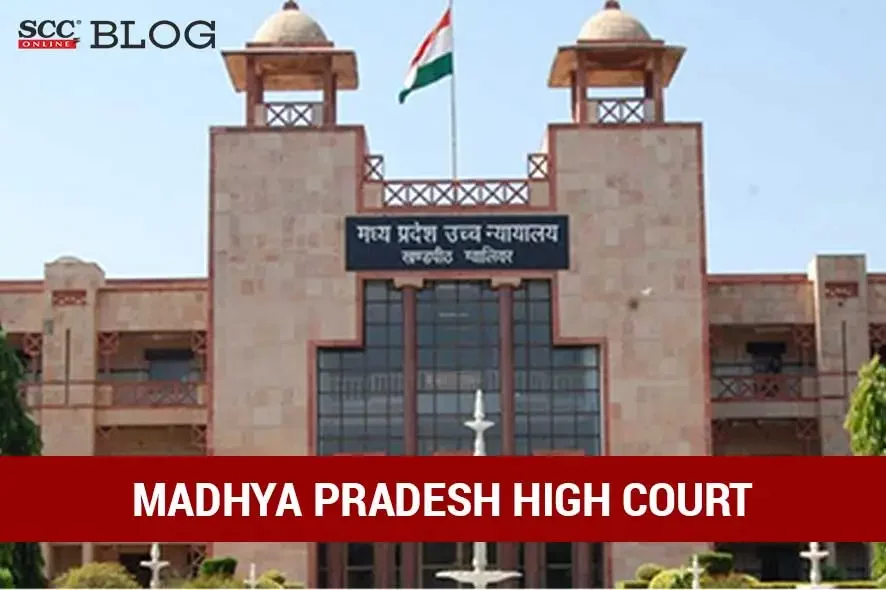Madhya Pradesh High Court | Subodh Abhyankar*, J., held that S. 529A of Companies Act, 1956 will prevail over Income Tax Act, 1961, therefore for the purpose of payment of Income Tax liabilities, the secured creditors cannot be directed to part with the amount which has been given to them out of the proceeds of the properties of the company in liquidation.
In the instant matter, an application was filed by the Official Liquidator before this Court seeking to remit a sum of Rs. 2,26,940/- to Income Tax Department towards Income Tax payable for the Assessment Year 2010-2011, out of funds available in the accounts of the Company in liquidation and to waive of the Income Tax liability of Rs. 16,81,220/-, Rs. 21,58,480/- & Rs. 15,63,570/- in respect of Assessment Year 2012-2013, 2013-2014 & 2014-2015 respectively.
While placing reliance on Ss. 529A and 530 of the Companies Act, 1956, the Official Liquidator contended that since the amount realized from the sale of the assets of the company has already been paid to the secured creditors and what is left to the company is liable to be set off against the secured creditors’ dues, therefore Official Liquidator's prayed be granted to remit amount for payment of tax. The Official Liquidator further contended that the Income Tax Department cannot claim its dues as a matter of right.
Opposing the prayer, the counsel for Kotak Mahindra Bank, IFCI Bank and SASF contended that the Bank is a secured creditor, and their rights are also saved under S. 529A of the Companies Act, 1956. They further contended that S. 529A of the Companies Act would have the overriding effect if read along with S. 530 of the Companies Act as also S. 178 of the Income Tax Act. The Counsel for the Income Tax Department submitted that the income tax department has priority over other claims of the secured or unsecured creditors and referred to S. 178 of the Income Tax Act, 1961.
After examining Ss. 529A and 530 of the Companies Act, 1956, the Court observed that S. 529A shall have the overriding effect over any other law or any other provision of the Companies Act itself therefore dues of the workmen and that of the secured creditors shall have the overriding preferential treatment in respect of payments of their dues but all the other dues in respect of tax etc. shall only have the right of preferential payment
The Court relied on Starit India Ltd., In re, 1998 SCC OnLine Bom 685 where it was held that “Section 178 of the Income-tax Act was introduced in 1961, whereas Section 529A and the amendment to Section 530 of the Companies Act have been brought by an amendment in the year 1985. Section 529A has been given overriding effect over other dues including the dues under Section 530(1)(a) and also any other law for the time being in force.” And observed that S. 529A of the Companies Act, 1956 would have precedence over the Income Tax Act, 1961. The Court further observed that the harmonious reading of the provisions of the two Acts concludes that S. 529A of the Companies Act, 1956 would prevail over the Income Tax Act, 1961.
The Court while dismissing the present application, held that the secured creditors cannot be directed to part with the amount which has been given to them out of the proceeds of the properties of the company in liquidation for the purposes of payment of Income Tax liabilities.
[In Ref: Beta Nephthol Ltd. v. Ref. has been recd. from BIFR New Delhi, 2023 SCC OnLine MP 748, order dated 14-03-2023]
*Judgment by Justice Subodh Abhyankar
Advocates who appeared in this case :
Shri Nikhil Pandey, Counsel for SASF
Shri Gaurav Chhabra, Counsel for Kotak Mahindra Bank
Shri Raunak Choukse, Counsel for IFCI Bank
Ms. Veena Mandlik, Counsel for Income Tax Department
Shri H.Y. Mehta, Counsel for the Official Liquidator along with OL






